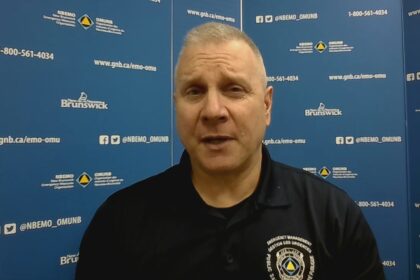PEIMore transportation options are coming to rural Prince Edward Island as ride-hailing companies work to expand their reach across the province.Uride, Kari aim to make travel safer and more accessible for Islanders beyond CharlottetownThinh Nguyen · CBC News · Posted: Aug 09, 2025 5:00 AM EDT | Last Updated: 2 hours agoKari is one of the two ride-hailing apps currently available on P.E.I. It can be downloaded and accessed on users’ cellphones, much like Uber or Lyft in other places. (Laura Meader/CBC)More transportation options are coming to rural Prince Edward Island as ride-hailing companies work to expand their reach across the province.Uride, which launched in Charlottetown last year, recently began offering its service provincewide. Now, riders can book trips to and from any location on P.E.I. through the app.Cody Ruberto, the company’s founder, said the move fits with Uride’s broader goal of bringing ride-booking services to smaller communities across Canada.”There’s some rural areas that don’t even have a taxi company or have limited to no public transit. And people need transportation. It’s an essential service,” Ruberto told CBC News.Kari co-founder Matt MacLeod says the app will soon allow people to book ‘rural-to-rural’ rides, allowing passengers to travel between smaller communities. (Thinh Nguyen/CBC)The other ride-hailing app on the Island, Kari, is also preparing to grow beyond P.E.I.’s capital.Kari rides must currently begin or end within the greater Charlottetown area, where most of the company’s drivers are based. But that’s about to change.”Over the next couple of weeks, you’ll notice in the Kari app that you’ll be able to book what we call a rural-to-rural ride,” said co-founder Matt MacLeod.Reducing impaired drivingRuberto said one of the key goals behind Uride’s expansion is to help reduce impaired driving, which he said is an ongoing issue in many rural communities.Prince Edward Island’s public transit system currently offers daily routes connecting communities across the province, from tip to tip. The fare is $2 per ride, with monthly passes available, while students in kindergarten to Grade 12 can ride for free.Like most bus services, though, the transit system follows fixed schedules and routes, and does not operate around the clock.Uride launched in Charlottetown last year, initially focusing on just the capital region. Over the past two months, it has expanded to offer service Island-wide. (Thinh Nguyen/CBC)Ruberto said this can leave significant gaps in service, especially in rural areas where taxis may be unavailable or have long wait times.”We started this whole company to try to prevent impaired driving and get people home safe,” Ruberto said.MacLeod echoed that mission, pointing out that P.E.I. has had high rates of impaired driving over the years.He said expanding Kari to more rural areas could help fill transportation gaps and provide alternatives.MacLeod also noted the expansion benefits residents in other ways, including creating income opportunities for people in rural areas who want to sign up as drivers.”It is going to give somebody the opportunity to maybe do a part-time job to make some income — maybe they’re retired, or they’re only working part time. This would allow them to make a few extra bucks by providing a service,” he said.”We try to make it as easy as possible to get involved as a rideshare driver. We provide the commercial insurance policy. The driver provides the vehicle and their time to be able to do it, and they get compensated for that.”Challenges with Island-wide expansionExpanding into rural areas hasn’t been easy, MacLeod said.Kari has been working on Island-wide service for a few years, he said, but one of the main challenges has been recruiting drivers in smaller communities.Because ride requests in those areas are less frequent, it’s difficult to maintain a steady network of drivers who are consistently available. We started this whole company to try to prevent impaired driving and get people home safe.— Cody Ruberto, UrideOnce Kari opens up for Island-wide bookings this month, MacLeod said riders in rural communities may see longer wait times at first. Drivers will likely be dispatched from Charlottetown until more are recruited in other parts of the province.”As the demand grows in these other areas of P.E.I., we’ll start to recruit drivers in, say, the North Shore or in Souris or in Alberton or Tignish or Three Rivers,” he said. “If there’s an influx of rides coming in from one certain area, that’s where we’ll put our focus on, trying to recruit local drivers, so that we can get the ETAs and, more importantly, the pricing down to a level that makes drivers happy and makes riders happy too.”MacLeod added that as a locally owned and operated business, Kari has the advantage of being able to respond quickly to residents’ needs.He said staff often hear directly from people about transportation gaps through phone calls, emails or in-person conversations, allowing them to identify areas with higher demand and adjust their services.’Reliable, safe rides home’The expansion of ride-hailing on P.E.I. is welcome news for MADD Canada.Steve Sullivan, the organization’s CEO, said impaired driving rates tend to be higher in rural areas where residents face more transportation barriers.Steve Sullivan, CEO of MADD Canada, says ride-hailing apps are accessible, affordable and safe options that can help reduce impaired driving in rural areas. (Submitted by Steve Sullivan)He cited a recent poll from the ride-booking company Uber, which partners with MADD Canada, that suggested 87 per cent of Canadians believe ride-sharing apps help reduce impaired driving incidents.Sullivan said the expansion of services like Uride and Kari can help make a real difference in rural communities.”The benefit of them is that almost everybody has a phone in their hand. They’re easy to access,” he said. “These are very affordable options that exist for people, and they’re reliable, safe rides home.”With files from Raphael Caron and Alex MacIsaac
Rural P.E.I. getting new transportation options as ride-hailing services expand Island-wide











